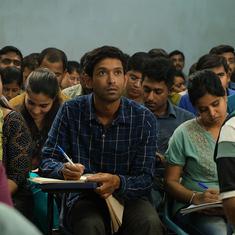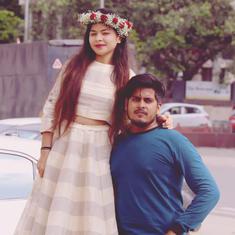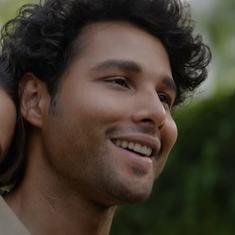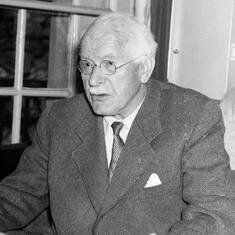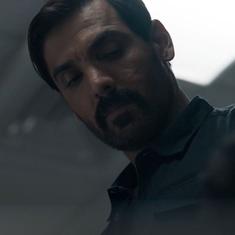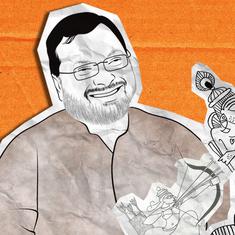Many writers struggle to articulate the questions one often asks in a milieu barraged with words scrubbed hollow with repetition. (These words are admonishingly accompanied by the prefix “buzz”.) Fiction writers who embrace these words and gleefully position them within their writing appear neutered, so willing to be easily slotted into a lens that one would hope they find uncomfortable, but ultimately don't because now, having the “right” opinions is good collateral. Sophie Mackintosh isn’t such a writer. She’s better than that.
Perhaps this is why her debut novel, The Water Cure, was nominated for the 2018 Man Booker Prize, and in 2023, she was named on the Granta Best of Young British Novelists list, compiled every ten years since 1983, identifying the 20 most significant British novelists aged under 40.
When I read Mackintosh’s The Water Cure, I felt like a child lulled into a disorienting reality that was commonplace for the characters. A family of five self-isolated in a hotel on an empty island operates a wellness centre for infected women from the mainland. Men are the infection, disallowed from entering the island, the only exception the father – King – of the family. When three men arrive at the island, this quasi-utopia breaks. It was wafer-thin all along.
Mackintosh’s characters are waifish themselves, their bodies robbed of nutrition, hours spent in pill-induced sleep, occasionally plunged into the water until inoculated. There is nothing allegorical about these realities within the world that Mackintosh has built – it is literal, the buzzwords effectively left behind for critics, academics, and readers. This novel’s writer has no use for such fatigued words.
Scroll spoke to Mackintosh about isolated settings, unreliable narration, and female desire. Excerpts from the conversation:
A book like The Water Cure almost demands a very isolated setting. How did you end up choosing the island?
It actually started as a totally different location. I started with the idea of an oil rig – an abandoned oil rig in a kind of apocalypse, where the whole world was flooded, and this family was living on it. I just loved the idea of the oil rig so much. I wrote a whole draft set on the oil rig. For me, the key was having this isolated environment, and there was something about it – like, you couldn’t get more isolated than an oil rig, with everything else flooded, and just this rig left.
But then, when I actually came to write about life on the oil rig, I did a whole draft, and my agent was like, “There are a lot of plot holes. How do they get to the oil rig? How are they getting food? Is it rusty?” All these kinds of things I hadn’t really thought about. And I realised, well, the isolation is the important thing – it’s not about the setting exactly. So, I thought, “What about an abandoned hotel on an island?” That gave me so much more flexibility because I didn’t have to think about rust, or how they’d get fresh water, or all those logistical things.
The hotel felt right – it was cut off from the rest of the world but still had this kind of grandeur, this faded history. It felt like a really fruitful setting for a novel about isolation and creating a new world. You could make a whole world out of a hotel.
I think your novels blur the line between reality and fantasy. You use that format to create this sense of ambiguity and uncertainty. It’s like the reader is always in this state of, not exactly fear, but a feeling of, “Oh, you don’t know what’s going to happen.” You’re left suspended throughout the narrative. Even towards the end, there’s no clear resolution, which I find really satisfying as a reader – though I’m sure you’ve heard otherwise sometimes, too. I just wanted to know why you stick to this approach instead of something more straightforward.
That’s a great question. I think I really love ambiguity. I love giving the reader a bit of space to decide for themselves. There’s something really interesting in what’s not said – it opens up so many possibilities. And with the sisters, it made sense because we only know as much as they do. They have so many gaps in their knowledge. They’ve been told certain things, but when we get different perspectives, we see how they fill in the gaps for each other or how they’ve had very different experiences.
I’m really interested in unreliable narration and how two people can have totally different experiences of the same event. I think that ambiguity, that mystery, is really important for the experience of the book because it’s disorienting – we’re in the dark as much as they are. It was a hard balance, though. Sometimes I wonder if I could have said more or given more clues. But I wanted the reader to have their own experience with it, to form their own conclusions, without everything being spelt out. I get a bit annoyed when things are spelt out for me, you know?
It’s really boring, actually – especially when metaphors are explained, or when the writer leaves behind those stiff, over-explained bits. It takes away the reader’s chance to investigate, which is what I usually enjoy.
Yeah! Although sometimes I’m hypocritical because there are moments when I do want to know more, and then I get annoyed too. It’s such a balance, isn’t it? That tension between feeling really satisfied as the investigator – I love that – and also just wanting to know what happened. Do you know an author called Alexandra Kleeman? She wrote an amazing book called Something New Under the Sun. It’s so good – one of my favourite books of the last few years. But she ends it right at a point where… well, no spoilers, but she kind of breaks it off at this moment where I was just like, “No, you can’t finish it here! You have to tell me what happens!” I was so invested at that point. And yet, looking back, it felt like a perfect ending.
Your book has been described as a dystopian novel. Some believe that writers have a responsibility to portray reality as it is. With speculative fiction, I think that becomes a bit more complicated. Take Margaret Atwood’s The Handmaid’s Tale – when it was reviewed by The New York Times back then, a critic argued that it didn’t present a believable or recognisable future. Which, honestly, seems like a ludicrous statement now – and even at the time.
But with your book, I feel like there’s both a sense of prescient understanding and nostalgic understanding, depending on where the reader is coming from. How did you achieve that balance?
Oh, yes, it’s a bit retro, for sure. That was really important to me. I think having a strong visual language in my books is crucial. Especially with my second book, Blue Ticket, which has a very retro vibe in terms of scenes, colours, and overall feel. It almost has the energy of a 70s road trip, and there’s no modern technology – just things like tape recorders. With The Water Cure, I intentionally left out any markers of modern life, so it could really be set in any time. I did place it in the near future, but there’s nothing specific to mark it. And with Cursed Bread, which is set in the 50s, I don’t think there are clear markers of that exact time either. I think having a timeless quality is important– it gives the story a fairy-tale-like feel, which I find really exciting. When you create a world like that, anything can happen. You’re free to populate it with your own ideas, your own visual language, and take it out of time.
I’ve talked before about wanting to disorient the reader a bit. If they’re not sure where they are or what time they’re in, it creates a sense of uncertainty. It throws you off, but that also gives it a dreamlike quality. In that space, anything can happen, which is really exciting for me as a writer. There’s also something freeing about playing with a world you’ve created. It gives you the freedom to do anything.

One of the conversations that often gets overlooked when discussing female desire is how counterintuitive or contradictory it can be. Feminism, of course, encourages conversations about desire, but there’s also the unacknowledged truth that something you might publicly condemn isn’t always something you're willing to dismiss in your personal life – especially when it comes to your sexuality. I found the dynamic between Lia and Llew to be a very nuanced portrayal of how these contradictions play out.
It felt like a dynamic you often see in real life – something most of us can relate to, to some degree. It’s kind of a push-pull, I guess. One person might feel something different than the other, and it creates this tension. Because it’s such an everyday dynamic, I wanted to elevate it, make the stakes feel more life-or-death. On one level, it’s a familiar dynamic that happens all the time – it might be upsetting, but on the island, the stakes are so much higher.
But I also wanted there to be some joy in it. Because, even though she’s processing a lot, he does show her affection and love, and she feels desire for him. I think it’s really important to show that, to represent that complexity – there’s both happiness and sadness in their relationship. So, for me, it was crucial that it wasn’t just about him taking advantage of her. I’ve had some readers interpret it as almost non-consensual, but that’s not what I intended at all. She’s very much an active participant, and she’s happy about it.
And that feeling of falling in love… I was also thinking, what would it be like to fall in love when you’ve never even considered the possibility before? It’s such a big thing. Like, thinking back to being a teenager and having a crush, I wondered, how would that feel if it happened to you as an older, young woman? How life-altering would it be? It’s about taking something we’re familiar with and placing it in an unfamiliar context. You start to think, how would that feel? And then it makes you realize how strange so many of the things we do or feel are when you take them out of their usual context.
In fairy tales, it’s often an older woman who keeps the younger protagonist trapped – like Mother Gothel in Rapunzel – preventing her from confronting the reality of the world. This, of course, reinforces the very structures we’re trying to dismantle, because there’s no resistance. In the novel, we eventually learn that it’s the mother who tells King to leave the island and not come back. To me, it feels like she’s the reason everything unfolds the way it does. I’d love to hear more about how you created that character, what you see her role as, and how she operates on the island.
She was a complex character to write because I wanted to explore the idea of a mother who is meant to protect her children. A mother is supposed to protect, but in her case, I think she genuinely believes she is doing that. However, protecting someone can easily become warped, right? It can slip into controlling behaviour, keeping them away from the world “for their own good,” even though it's not truly for their benefit. Sometimes, I think she’s aware of what she’s doing, but other times, she genuinely believes in the project she’s invested in – this continuation of the project, which has become her focus.
It was also important for me to explore how women can be complicit in systems of violence, especially within families. Just because she’s the mother, it doesn't mean she’s not upholding the status quo. In fact, she’s perpetuating the violence that the father has instilled. It’s this contradiction: she's supposed to be looking after the girls, but instead, she’s reinforcing the system. For the girls, it feels like a betrayal.
But I wanted to make sure the characters weren’t reduced to simple archetypes, like “men are bad, women are good.” The reality is far more nuanced – everyone in the book contains both good and bad qualities. No one is driven by pure malice. Even when characters have good intentions, their actions can be warped by power dynamics that have shifted over time, and you can see how that plays out.
I found the cures interesting, as they seem similar to the treatments people undergo in self-optimisation culture. You know the kind – wellness programs, courses telling you how to be the best version of yourself, or even how to de-age with the right vitamins. It all ties back to capitalism. Was that connection intentional, or did it develop naturally in your work?
No, totally. I’ve been thinking a lot about wellness culture, and I was also looking into Victorian water cures. It’s not where the book came from, but the title is definitely connected to it. So, during the Victorian era, they would send women to spas for different kinds of treatments, like jets of water or hot and cold baths, kind of like what we think of as jacuzzis today. But it was all framed around the idea of curing something like hysteria. The treatments were bizarre, honestly – like immersion in cold or hot water, and the whole purpose was to make these women “less hysterical,” or at least that was the idea.
That really struck me when I was reading about it. The concept that someone could be labeled as hysterical, and then sent to the sea or a spa for these kinds of wellness cures, only to return as a “new woman.” It’s strange when you think about it, especially the idea that hysteria was something that needed to be fixed in the first place. But also, there’s something really interesting about the connection between water and wellness – it feels almost instinctive, right? Like, even today, water has this purifying, restorative quality. I mean, I’m really into saunas myself, and they’re huge in the UK right now. Even though I know there’s a whole wellness market around it, there’s something comforting in the idea of purification through water, like you’re washing away something.
With these Victorian rituals, they thought the solution was to tire the women out – basically get them to expel their energy through physical exercise, almost as a way to “reset” their emotions. It sounded kind of comforting in a way, too. I mean, sometimes I think, “I have so many feelings right now,” and it would be nice to have something like that, you know? Some kind of ritual to self-optimise or clear my mind. There’s definitely something comforting about rituals like that.
The island is defined by the absence of men, except for King. Then, King supposedly dies, but that dynamic is once again disrupted when these men arrive. What made you choose to structure it this way?
For the structure, I really wanted to establish their life before the men arrive – showing it as this very sealed-off, almost strange kind of daily routine. I wanted it to feel like something they don’t question, something that’s just normal for them. You really see it in the rituals and how everything plays out, but there’s no sense of this is weird because, for them, it just is what they do.
But then, when the men arrive, I always knew it was going to be about outsiders coming in and puncturing this bubble. So, I had to first show the bubble – establish that world – and then have it ruptured. The structure just made sense to me in that way. It felt like such an abrupt rupture, especially since these women have been told their whole lives that men are toxic and bad, and then, suddenly, they’re right there in front of them.
The women in the novel seem to think they need King but also know they don’t really need men. As I was reading, I kept thinking about this question that I’m sure women have asked forever – and still ask today – which is: Do women actually need men at all? How do you respond to that question through this book and through your work more broadly?
I really like that question. I think, in the book, it was really important to me to show the women breaking free from that idea – from the influence of their fathers, from the men around them. They’ve really taken control of their agency and are stepping out into the world, uncertain of what’s ahead for them. In Cursed Bread, Elodie, the main character, also gains a sense of agency by the end. She’s been through some really traumatic events, but she’s living on her own, forging her path. And in my second novel, the main character is very much on a journey of self-discovery as well.
I think the idea of being able to be alone and still have that sense of agency is really vital, especially as women. It’s something I always want my characters to fight for. I mean, men are great, obviously – they’re people, too – but I think the core of it is this idea of agency, of finding the self, and having the freedom and capability to be alone. That, to me, feels more important than whether or not you have men around or rely on them.
The way of life on the island is not sustainable. Was this a conscious decision?
Yeah, I think they could have continued for a while longer, but there were definitely cracks starting to show, like you mentioned earlier. Grace’s pregnancy and the arrival of the baby – it was a big shift. Even without the men’s arrival, I think there would have been a slow breakdown of those structures as the girls got older and started questioning things. Maybe Grace knew too much, or even the parents’ perspectives could have shifted over time. Forever is a long time, but I definitely think something would have punctured the bubble eventually.
The book felt more like an anti-capitalist fable than a feminist one.
I started writing with a specific message in mind, but for me, it’s always more about the story. I don’t always realise what’s creeping in until I read it back and think, “Oh, okay, this is reflecting something I was feeling at the time,” or it’s mirroring something happening in the world. There are moments when I don’t really think about my readers that much – not in a negative way, but more in the sense that if I focus too much on what people might think, I lose sight of the story. I try to just do what feels right for the story and for myself, and hope that readers will connect with it.

